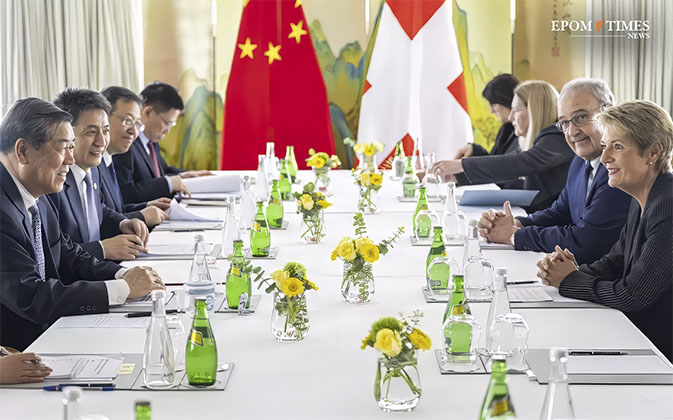The United States and China wrapped up two days of trade negotiations in Geneva on May 11, 2025, reaching a preliminary understanding aimed at easing tensions that have escalated due to aggressive tariffs and trade barriers. Officials from both nations described the talks as productive, with more detailed agreements expected in the coming days.
The negotiations featured top officials from both sides, including U.S. Treasury Secretary Scott Bessent, U.S. Trade Representative Jamieson Greer, and Chinese Vice Premier He Lifeng. Discussions focused on reducing high tariffs—up to 145% on Chinese goods imposed by the U.S., and up to 125% duties by China on American exports. Additional points included intellectual property protections, forced technology transfers, and combating the illicit trafficking of fentanyl, which has strained relations further.
U.S. representatives described the meetings as a “substantial step forward,” hinting at possible tariff rollbacks depending on continued progress. A joint statement summarizing the outcomes is expected soon. President Donald Trump expressed optimism about the direction of talks, while Chinese officials welcomed the constructive tone and indicated willingness to keep negotiating.
Global financial markets responded positively to the developments. U.S. futures rose after the news, with the Dow Jones Industrial Average up nearly 1%, the S\&P 500 rising by 1.4%, and Nasdaq futures jumping 2%. China’s CSI 300 Index also gained 0.6%, reflecting cautious investor optimism about the easing of trade hostilities.
While no binding agreements were signed, both sides indicated that additional meetings will follow. A delegation of Chinese shipping industry leaders is expected in Washington to continue discussions. Analysts note that sustained economic progress hinges on formal agreements that reduce trade barriers and improve transparency.
The Geneva talks mark a potential turning point in U.S.-China trade relations, offering a path toward reduced tensions and renewed cooperation. However, the coming weeks will be critical in determining whether preliminary commitments can evolve into a lasting trade framework.



